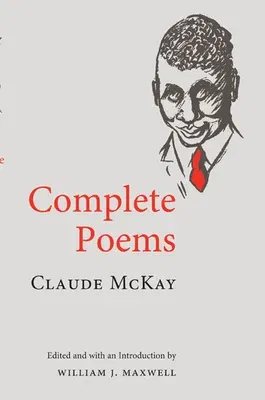Claude McKay
(Author)Complete PoemsPaperback, 1 July 2008

Qty
1
Turbo
Ships in 2 - 3 days
Only 1 left
Free Delivery
Cash on Delivery
15 Days
Free Returns
Secure Checkout

Print Length
456 pages
Language
English
Publisher
University of Illinois Press
Date Published
1 Jul 2008
ISBN-10
0252075900
ISBN-13
9780252075902
Description
Product Details
Author:
Book Format:
Paperback
Country of Origin:
US
Date Published:
1 July 2008
Dimensions:
23.39 x
15.42 x
2.97 cm
Genre:
African American
ISBN-10:
0252075900
ISBN-13:
9780252075902
Language:
English
Location:
Urbana-Champaign, IL
Pages:
456
Publisher:
Weight:
689.46 gm